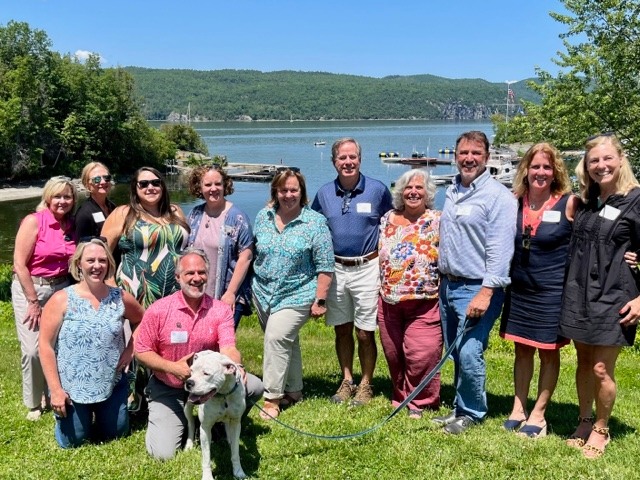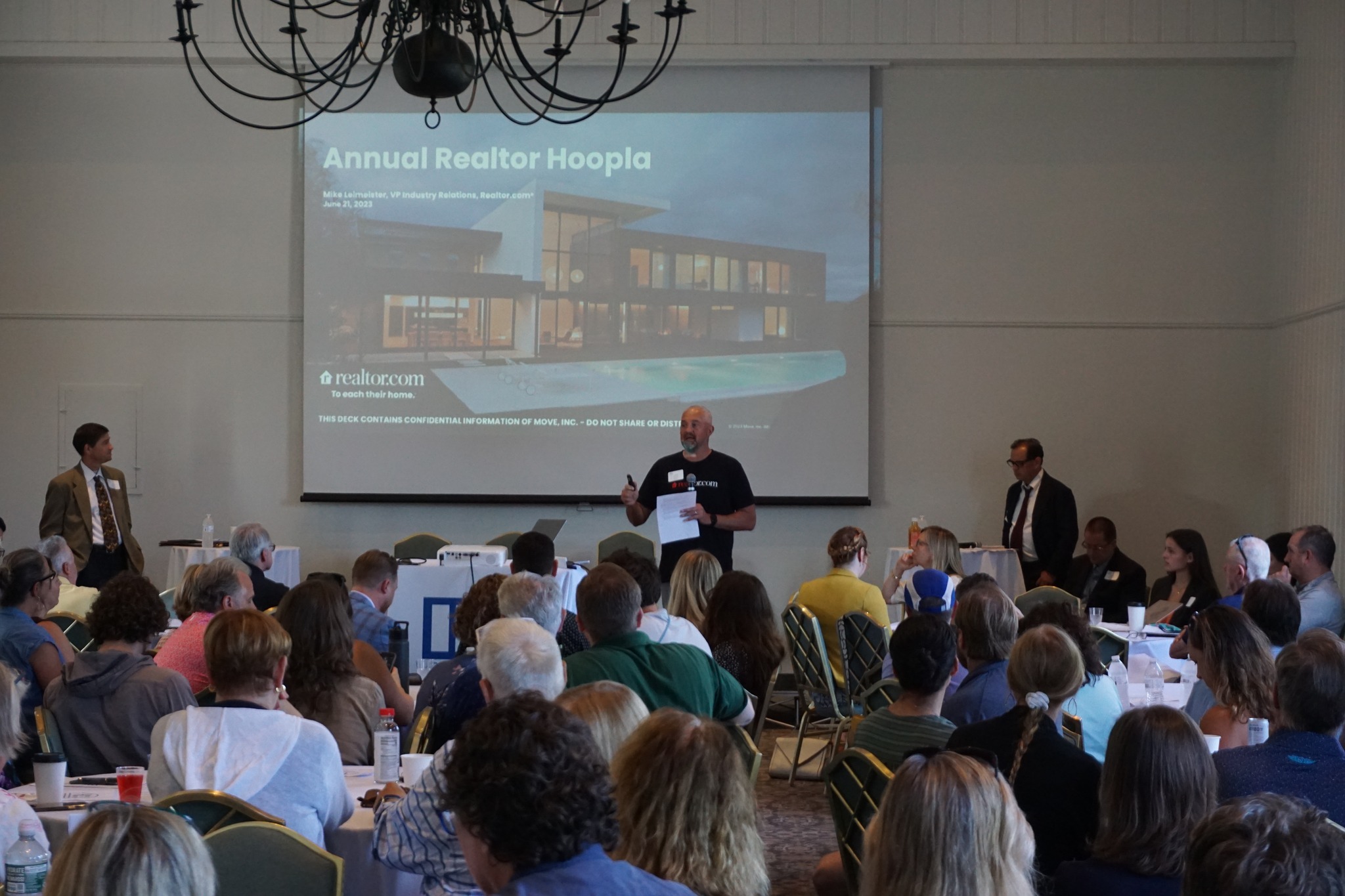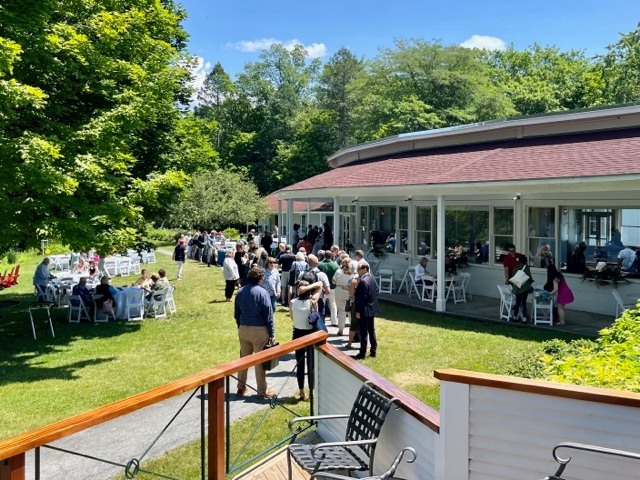ADVOCACY
Now, more than ever, it is critical that REALTORS speak with one voice about the stability that the real estate market brings to our communities. Our elected officials make decisions that have an impact on the bottom line of REALTORS and their customers and clients. Working together, we can ensure that the dream of home ownership is preserved, and that the real estate industry continues to support a strong and vibrant economy.
The Vermont Association of REALTORS (VAR) serves more than 2100 members throughout Vermont who are building communities where they work, strengthening neighborhoods where they live, and ensuring economic vitality for all Vermonters by helping them to unleash the power of the American dream of home ownership. VAR is a recognized advocacy leader for its REALTOR members, and for home and property owners in Vermont.
VAR 2025 Legislative Priorities
Click the tabs on the left to learn more about VAR’s core legislative priorities for 2025.
 In 2024, the Vermont Legislature passed a yield bill which set the average property tax increase at 13.8% for Fiscal Year 2025 starting July 1, 2024. This years estimate from the December 1st Tax Department letter is anticipated to increase property taxes an average of 5.9% bringing the two year total to nearly a 20% increase.
In 2024, the Vermont Legislature passed a yield bill which set the average property tax increase at 13.8% for Fiscal Year 2025 starting July 1, 2024. This years estimate from the December 1st Tax Department letter is anticipated to increase property taxes an average of 5.9% bringing the two year total to nearly a 20% increase.
We will support efforts to reduce the impact of property taxes on property owners and continue to oppose the creation of new taxes to “buy down” the property tax rate.
 VAR will advocate for and support efforts by School Boards and the Department of Education to find ways to reduce the cost to the Education Fund for Fiscal Year 2026. We believe that cost savings can be created in the short term by looking for administrative savings and generally tightening school budgets.
VAR will advocate for and support efforts by School Boards and the Department of Education to find ways to reduce the cost to the Education Fund for Fiscal Year 2026. We believe that cost savings can be created in the short term by looking for administrative savings and generally tightening school budgets.
As the legislature considers long range solutions to address the cost of education, we support efforts to reduce the number of supervisory Unions (currently 51), and School Districts (currently 118). Education savings can be created by consolidating non-teaching administrative functions and school boards from the top down. We continue to support efforts to increase the student to adult ratio in all schools.
 VAR has been supportive of policies that reduce regulatory hurdles to the production of residential housing. We supported Act 47 in 2023 that limited local zoning including parking requirements, allowing duplexes anywhere single-family homes are permitted and to support the creation of Accessory Dwelling Units.
VAR has been supportive of policies that reduce regulatory hurdles to the production of residential housing. We supported Act 47 in 2023 that limited local zoning including parking requirements, allowing duplexes anywhere single-family homes are permitted and to support the creation of Accessory Dwelling Units.
In the 2024 legislative session, we actively supported Act 181 addressing landmark changes to Act 250 and interim exemptions for the construction of residential housing in Villages and Downtowns and adjacent areas through January 1, 2027. We will participate with the new Land Use Review Board to determine the future of Act 250 appeals and the designation of Tier 3 “environmentally sensitive areas.” We will be prepared to advocate for extension of interim exemptions as Act 181 develops.
 Your VAR advocacy team has been participating in the Residential Building Energy Workgroup created by Act 181. This group met over the summer and created a report to the legislature recommending increasing energy code compliance in the construction of residential housing. The report supports increasing education for builders, and we support education for Realtors® to better understand the benefits of more efficient homes.
Your VAR advocacy team has been participating in the Residential Building Energy Workgroup created by Act 181. This group met over the summer and created a report to the legislature recommending increasing energy code compliance in the construction of residential housing. The report supports increasing education for builders, and we support education for Realtors® to better understand the benefits of more efficient homes.
The report also recommended moving inspection and enforcement of the RBES to the department of fire safety. Realtors® joined the Department of Fire Safety and the Public Utility Commission in a minority dissent of this recommendation. We understand that the Department of Fire Safety does not currently inspect single family home construction and does not have the personnel or resources to implement such a program.
 Last year, the legislature proposed a data privacy bill that would regulate businesses who collect data information on their customers. Depending on the threshold, many real estate companies would fall under this legislation. While we support regulation of data for minors, we oppose broad ranging data privacy laws that will hamper commerce. We are opposed to any legislation that incudes a citizens private right of action to sue data collectors.
Last year, the legislature proposed a data privacy bill that would regulate businesses who collect data information on their customers. Depending on the threshold, many real estate companies would fall under this legislation. While we support regulation of data for minors, we oppose broad ranging data privacy laws that will hamper commerce. We are opposed to any legislation that incudes a citizens private right of action to sue data collectors.
 The Vermont law Act 18 of 2023 requires greenhouse gas emissions to be reduced by 40% by 2030 and 80% by 2050. Once called the “Affordable Heat Act,” the law is designed to get Vermonters to use less fossil fuels to heat their home. It also allows any person to challenge in court, the states adherence to these reduction thresholds starting in 2025. Ultimately, the clean heat standard will impose a tax on the import of heating fuel that will be passed on to homeowners.
The Vermont law Act 18 of 2023 requires greenhouse gas emissions to be reduced by 40% by 2030 and 80% by 2050. Once called the “Affordable Heat Act,” the law is designed to get Vermonters to use less fossil fuels to heat their home. It also allows any person to challenge in court, the states adherence to these reduction thresholds starting in 2025. Ultimately, the clean heat standard will impose a tax on the import of heating fuel that will be passed on to homeowners.
We support the concept of reducing our carbon footprint to reduce greenhouse gases to address climate warming. However, we will oppose significant increases in the cost of home heating. We will also support efforts to change or eliminate the right of any person to sue the state to enforce performance.
 The answer to the afore mentioned policy challenges for Vermont is to build and expand our economy. We will continue to work to create opportunities to create more residential housing and expand the grand list. Grand list expansion is critical to grow the property tax base to support the cost of Education. We will also advocate for programs to attract new business to Vermont and to help existing businesses to grow their business and workforce.
The answer to the afore mentioned policy challenges for Vermont is to build and expand our economy. We will continue to work to create opportunities to create more residential housing and expand the grand list. Grand list expansion is critical to grow the property tax base to support the cost of Education. We will also advocate for programs to attract new business to Vermont and to help existing businesses to grow their business and workforce.









